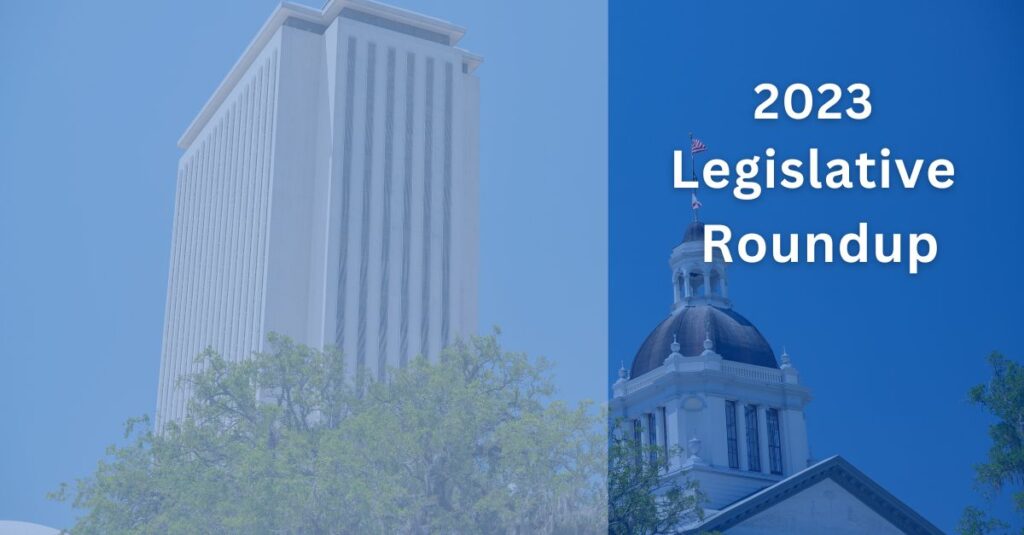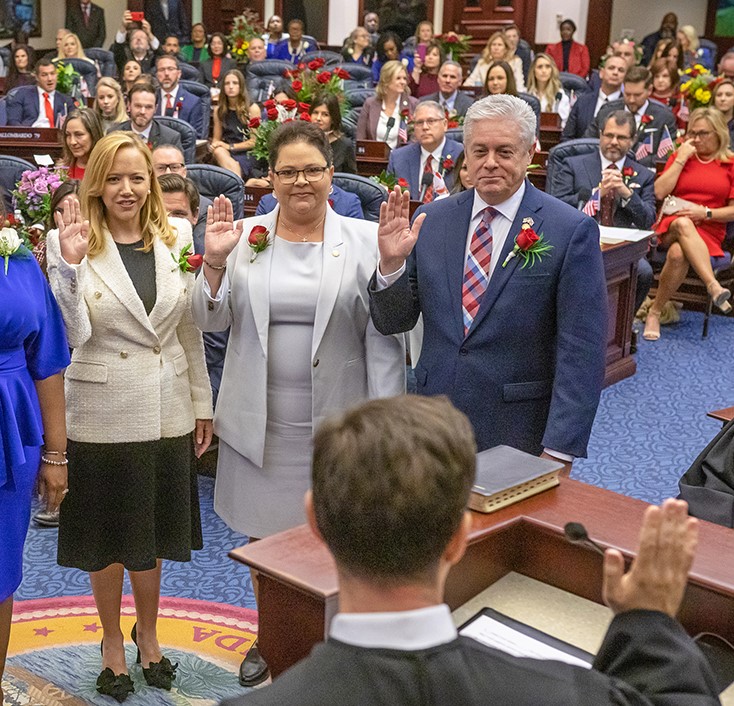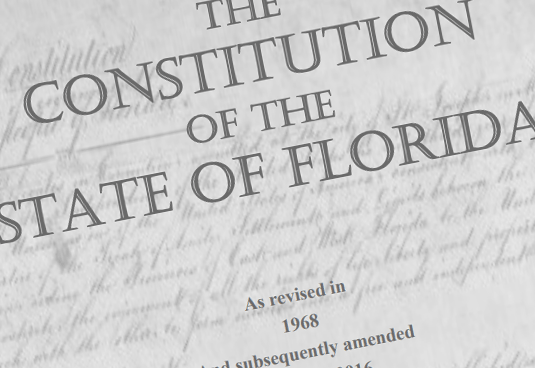A Look at RPOF Rule 8 Endorsements.
By Allison Taylor
RPOF Rule 8 under the current Party Rules of the Republican State Executive Committee, which governs the Republican Party of Florida (RPOF), allows for the State Committee and a County Executive Committee to “endorse, certify, screen, or recommend a Republican candidate in a contested Republican primary, or a registered Republican in a nonpartisan election (including judicial races where it is legally permissible)” when certain conditions are met.
Though its origin is difficult to research, Rule 8 has a long history in Florida GOP politics. Some longtime party members (with decades of experience) speculate that it may have come about to thwart former members of the Ku Klux Klan, who were primarily Southern Democrats, from switching parties to run for office as Republicans. By invoking Rule 8, you could keep out those who would taint the party and its principles.
RPOF Rule 8 endorsements: Two schools of thought
Given what’s at stake, RPOF Rule 8 endorsements can be a powerful and effective political tool. But while endorsements may give a candidate momentum, they don’t guarantee the winner. And often they are steeped in controversy.
When Volusia County’s Executive Committee endorsed a slew of candidates in the 2022 primary election season (as they’ve done since 2012 except for 2020), they were met with a slew of legal issues that included a cease-and-desist letter from a non-endorsed candidate, a grievance filing with RPOF, and accusations of “chicanery” from a Council member. This article in the Daytona Beach News-Journal details all the commotion.
While some RECs love Rule 8 and wield it deftly, others see endorsements as undermining GOP voters by throwing weight behind one. Why not let the voters decide?
This traditionalist school sees Rule 8 as being used only in rare circumstances, when there is a need to sever ties with an unseemly candidate, such as one facing criminal charges.
Afterall, County Executive Committee members are charged with supporting all Republican candidates for local, state, and federal offices, or any registered Republicans in non-partisan races, where permissible — unless Rule 8 has been properly applied.
Another school of thought says that sometimes it may be prudent to back the strongest Republican candidate in a contested race — that is, the best candidate who is most likely to win. If this sounds a bit subjective to you, you would not be alone.
To invoke Rule 8 requires careful procedures that include no less than “10 days’ written notice to each member of the Executive Committee of any meeting at which the vote is to be taken” with a copy of the notice to the Republican Party of Florida.
Further, each announced candidate must also be notified that a vote on endorsement is to be taken and that “he or she will be allowed to speak at such meeting in support or opposition to any proposed endorsement, certification, or recommendation for an office for which he or she is a candidate.”
And, per the rules, the endorsement is achieved by one of two methods:
(1) Upon the affirmative vote of not less than 60% of the County Executive Committee present and voting at a duly called meeting complying with notice requirements set forth below, provided that the number voting to endorse represents a majority of the full committee, or
(2) upon the affirmative vote of not less than two-thirds (2/3) of those present and voting at such meeting, provided that a quorum is present at the time the vote is taken.
In 2022, our Seminole REC did not invoke RPOF Rule 8 in the contested races (neither partisan nor non-partisan), though Gov. DeSantis’ office had advised doing so for the School Board races only.
Having so many qualified candidates on the primary ballot in the School Board races resulted in splitting the votes between the GOP candidates. Left-wing candidates ended up taking the three seats up for re-election. (In District 1, Kristine Kraus won outright; and, in Districts 2 and 5, registered Republicans Sean Cooper and Dana Fernandez, respectively, advanced to runoffs in the General Election but were then defeated).
In the all-important 2024 presidential race, Donald Trump currently leads in endorsements of the registered big-name candidates. According to Ballotpedia’s site, among the more than 100 Republicans who have filed to run, only Trump, Nikki Haley, and Sen. Tim Scott have received any endorsements.
As of May 25, Trump had received 77 noteworthy endorsements including 51 U.S. House members, 10 U.S. Senators, and 2 governors. Nine U.S. Reps from Florida have endorsed Trump including: Vern Buchanan, Byron Donalds, Matt Gaetz, Anna Paulina Luna, Brian Mast, John Rutherford, Greg Steube, Michael Waltz, and our own rep, Cory Mills. DeSantis trails with 11 endorsements. Sen. Tim Scott has received two endorsements, and Nikki Haley has received one.
The Republican Party will select its presidential nominee at the 2024 Republican National Convention, which will take place in Milwaukee, Wisconsin, from July 15-18, 2024.
As we approach the 2024 races, any use of Rule 8 should be made judiciously and in full compliance with RPOF rules to stave off any legal actions. As its history implies, when applied, the rule will likely cause a severing of ties.
Read the full text of RPOF Rule 8.
Opinions expressed in this article are the author’s own and do not necessarily reflect those of the Seminole County Republican Executive Committee or board.
Learn more about your Seminole County Republican Party. Remember to follow us on Facebook!
[A1]Link to RPOF Rules of Procedures














